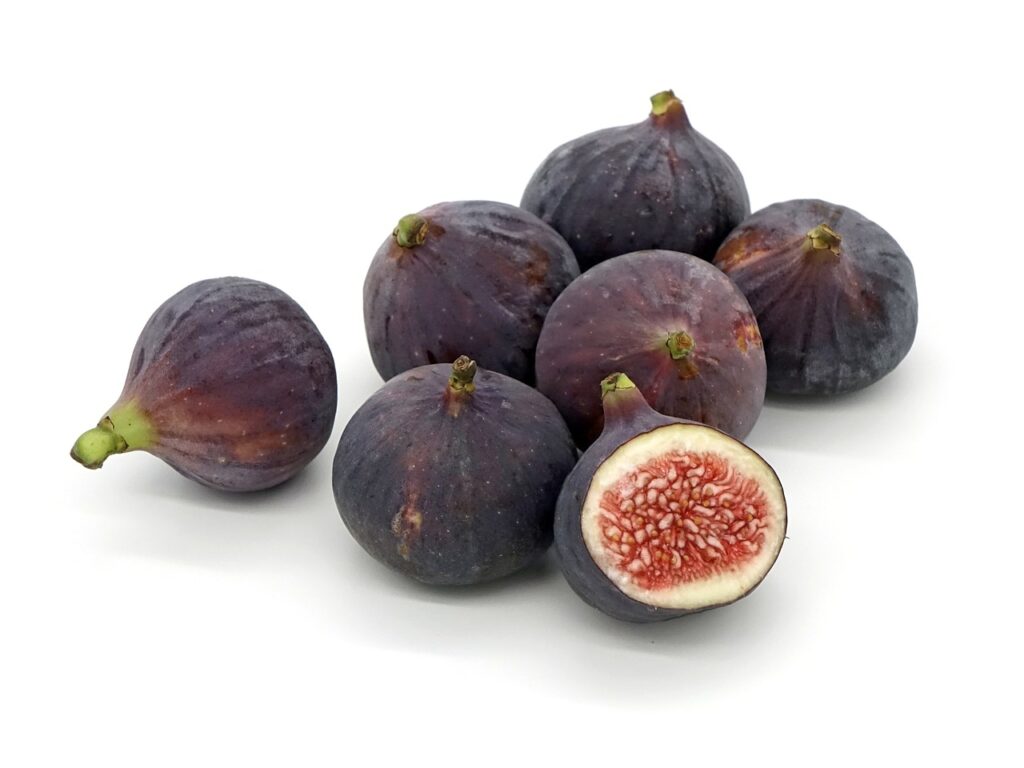Discover the powerful health benefits of dried figs, including improved digestion, heart health, and immunity. Learn how this nutrient-rich fruit supports overall wellness naturally.
Nutritional Profile of Dried Figs
Dried figs are packed with essential vitamins and minerals, making them an excellent snack for individuals seeking a nutrient-rich option. Here’s a breakdown of the key nutrients found in dried figs:

- Fiber: One of the standout features of dried figs is their high fiber content. A single serving can provide up to 20% of your daily fiber requirement, vital for digestive health.
- Vitamins: Dried figs are rich in vitamins like Vitamin A, Vitamin K, and B-complex vitamins, which are essential for maintaining skin health, promoting blood clotting, and supporting metabolic functions.
- Minerals: They are also a good source of key minerals such as calcium, magnesium, potassium, and iron. These minerals are crucial in maintaining strong bones, regulating muscle contractions, and promoting overall cardiovascular health.
- Antioxidants: Figs contain various antioxidants, including polyphenols and flavonoids, which help combat oxidative stress and reduce the risk of chronic diseases.
Digestive Health Support
Dried figs are well-known for their positive impact on digestive health, primarily due to their high fiber content. Fiber helps regulate bowel movements, preventing constipation, and promoting the overall health of the digestive tract.
- Prebiotic Properties: Dried figs act as prebiotics, which means they provide nourishment for the beneficial bacteria in the gut. A healthy gut microbiome is crucial for proper digestion and overall well-being.
- Relief from Constipation: Figs contain both soluble and insoluble fiber, which makes them an excellent remedy for constipation. The soluble fiber adds bulk to the stool, while the insoluble fiber helps move it smoothly through the intestines, ensuring regular bowel movements.
Rich Source of Calcium for Bone Health
Maintaining strong bones becomes increasingly important as we age, and calcium is one of the critical minerals required for bone strength. Dried figs are an excellent plant-based source of calcium, which is particularly beneficial for individuals who do not consume dairy products.
- Bone Density: Regular consumption of dried figs can help improve bone density, reducing the risk of osteoporosis, especially in postmenopausal women who are more susceptible to bone loss.
- Calcium Absorption: The magnesium found in figs works synergistically with calcium, improving the body’s ability to absorb this essential mineral and promoting better bone health.
Heart Health Benefits
Dried figs contribute to heart health in several ways. The combination of dietary fiber, potassium, and antioxidants makes them a heart-friendly fruit.
- Blood Pressure Regulation: Potassium is a key nutrient in controlling blood pressure, and dried figs are rich in this mineral. Potassium helps counterbalance the effects of sodium in the body, reducing tension in blood vessels and lowering the risk of hypertension.
- Cholesterol Management: The soluble fiber in figs helps lower LDL cholesterol levels (the “bad” cholesterol) by binding to it in the digestive system and facilitating its removal from the body.
- Antioxidant Protection: The antioxidants found in figs, such as polyphenols and flavonoids, protect the heart by reducing inflammation and preventing oxidative damage to the blood vessels and heart tissue.
Blood Sugar Regulation
Although dried figs contain natural sugars, their high fiber content helps regulate blood sugar levels, making them a better choice than many processed sugary snacks.
- Low Glycemic Index: Dried figs have a relatively low glycemic index, meaning they cause a slower, more gradual rise in blood sugar levels. This makes them a great snack for individuals with diabetes or those looking to maintain stable blood sugar.
- Insulin Sensitivity: Some studies have suggested that compounds found in figs may improve insulin sensitivity, helping the body manage blood sugar levels more effectively.
Weight Management and Satiety
For those aiming to manage their weight, dried figs can be a great addition to the diet. Their high fiber content promotes a feeling of fullness and reduces overall calorie intake.
- Satiety: Fiber-rich foods like dried figs help you feel fuller for longer, which can reduce the temptation to snack on less healthy options throughout the day.
- Natural Sweetness: Dried figs offer a natural sweetness, making them a satisfying alternative to sugary treats. Replacing processed sugars with the natural sugars found in figs can support weight management and help curb sugar cravings.
Boosting Immunity
Figs contain essential nutrients that play a role in strengthening the immune system. Vitamins like A and K, along with antioxidants, contribute to a robust immune response.

- Antimicrobial Properties: Some studies suggest that figs have antimicrobial properties, which can help the body fend off infections and boost overall immune health.
- Antioxidant Defense: The antioxidants in figs neutralize free radicals that can weaken the immune system, thus enhancing the body’s ability to fight off diseases and infections.
Improving Skin Health
The vitamins and antioxidants in dried figs also offer benefits for skin health, making them a natural addition to beauty regimens.
- Anti-Aging: The high antioxidant content helps protect the skin from oxidative stress, which is a major contributor to signs of aging like wrinkles and fine lines.
- Skin Hydration: Vitamin A, found in figs, helps keep the skin hydrated and promotes healthy skin regeneration, leading to a more radiant complexion.
Support for Anemia
Iron deficiency is one of the most common nutrient deficiencies, particularly among women. Dried figs are a good source of non-heme iron, which is essential for producing hemoglobin and maintaining healthy red blood cells.
- Iron Absorption: While the iron in plant-based foods is not as easily absorbed as that from animal sources, pairing figs with foods rich in vitamin C can enhance iron absorption and help prevent anemia.
Figs and Pregnancy Health
Pregnant women can benefit from the nutrient profile of dried figs, as they provide essential vitamins and minerals needed for fetal development.
- Folate: Figs are a source of folate, which is vital for preventing neural tube defects in developing babies.
- Fiber for Digestion: Pregnancy often comes with digestive challenges, such as constipation. The fiber in dried figs can help alleviate this common issue and support overall digestive health during pregnancy.
How to Incorporate Dried Figs into Your Diet
Incorporating dried figs into your daily diet is easy and versatile. Here are some simple ways to enjoy them:
- As a Snack: Dried figs can be eaten on their own as a delicious, sweet snack.
- In Salads: Add chopped dried figs to salads for a sweet contrast to savory ingredients.
- In Smoothies: Blend dried figs into smoothies for a naturally sweet boost of fiber and nutrients.
- Baking: Use dried figs in baking to enhance the sweetness of cakes, muffins, and breads.
- With Oatmeal: Sprinkle chopped dried figs on oatmeal or yogurt for added texture and flavor.
Conclusion
Dried figs are a natural powerhouse of nutrients that can provide a wide array of health benefits, from improving digestion to supporting heart health and even aiding in weight management. Their high fiber content, vitamins, minerals, and antioxidants make them a valuable addition to any diet. Whether you’re looking to improve your digestive health, boost your immune system, or simply enjoy a delicious and nutritious snack, dried figs are an excellent choice. By incorporating them into your daily routine, you can harness the many health benefits they offer and take a step toward a healthier, more balanced lifestyle.



